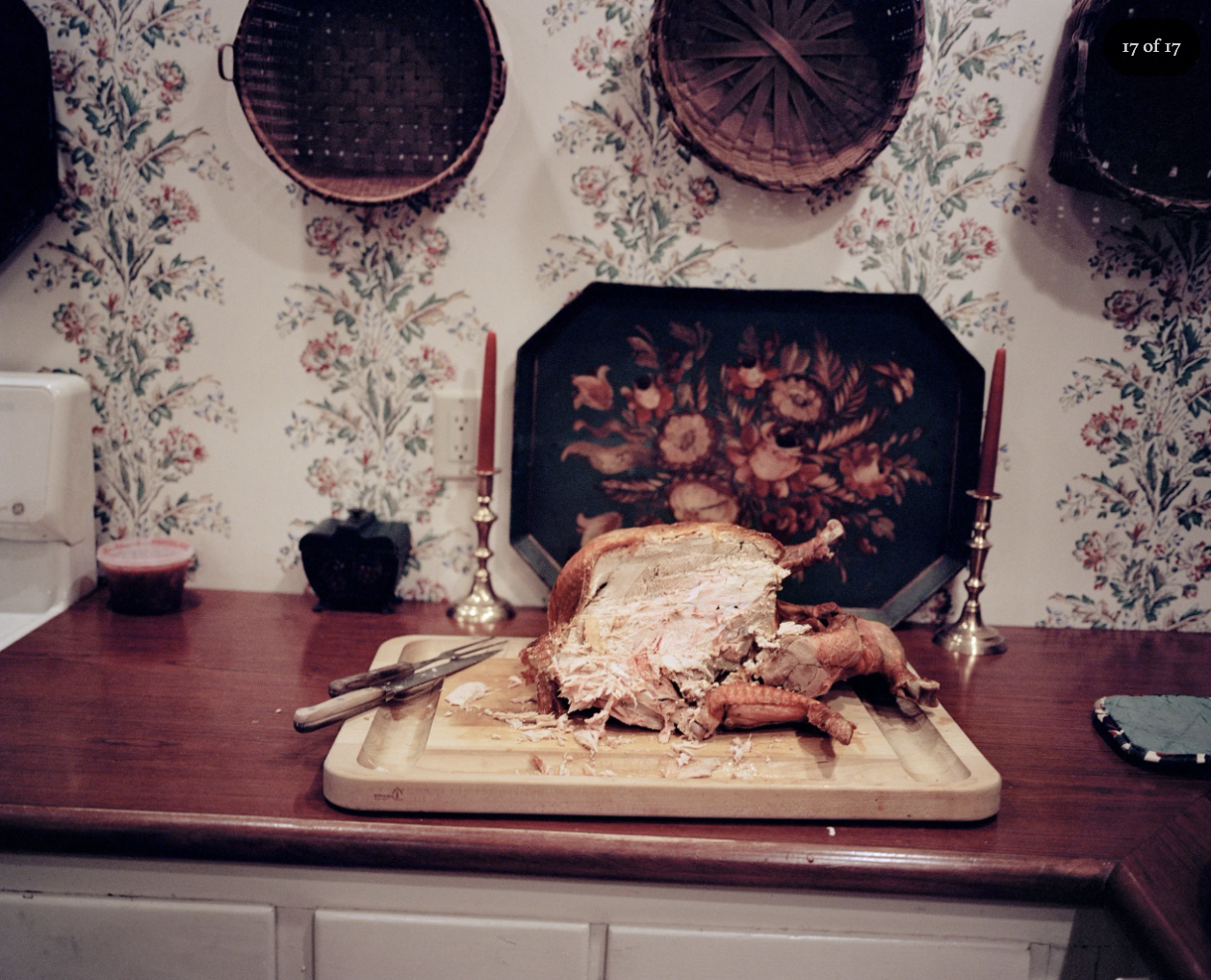Pause and pondr
WHY ARE INCLUSIVE HOLIDAYS IMPORTANT TO CELEBRATE?
With the coming holiday season, we reflect on some of the milestones this year in recognizing holidays that honor significant events or people that have been historically overlooked.
DID YOU KNOW?
A majority of Americans (over 60%) say they know “a little” or “nothing at all” about Juneteenth.
Source: Gallup
WHAT YOU’LL LEARN
Understand the significance of holidays that highlight key moments of historical oppression
Recognize the importance of holidays for people historically excluded
Why did Juneteenth become a federal holiday?
In June 2021, Congress formally acknowledged Juneteenth as a national federal holiday. Juneteenth marks the day in 1865 when a group of enslaved people in Galveston Bay, Texas learned that they were emancipated — a full two-and-a-half years after the signing of the Emancipation Proclamation on New Year’s Day of 1863. Juneteenth had been celebrated in various communities across the country before its official national recognition but gained more widespread traction after the murder of George Floyd in May 2020.
Recognizing Juneteenth on a national level has broad impacts, ranging from embracing an underrepresented facet of American history to the continuation of conversation and anti-racist education in our society.
How did Indigenous Peoples Day come to be?
In recent years, there has been a similar push for the recognition of Indigenous Peoples Day to replace Columbus Day nationally and also make it a federal holiday. 2021 marked the first time a U.S. president recognized the day through a proclamation.
By the ‘90s, a number of states had begun to recognize Indigenous Peoples Day. But calls by Indigenous activists to a counter-celebration to Columbus Day, which, to many in the community, represents the glorification of a violent history of colonization, arose as early as the 1970s.
Corinne Rice-Grey Cloud, founder of Native-owned DEI consulting firm Rice Consulting, says there is a national lack of education about Indigenous peoples, their history and culture, as well as the current state of their diverse communities and nations. Recognizing Indigenous Peoples Day reaffirms the need for this education, she said.
“Education is important because you wouldn’t believe how many people believe that Native people just don’t exist,” she said.
Rice-Grey Cloud says this misconception is perpetuated in multiple ways, including by using the past tense when educating about Indigenous peoples and through the absence of information and connection to people living today.
“Indigenous Peoples Day brings attention to the many Indigenous people who are thriving today, and it helps to remind the descendants of those settlers and immigrants that there is a first people for this nation,” she said.
The advocacy for national recognition has been largely grassroots, from school districts to work settings, from county to county, city to city.
“What I love the most is the fact that that’s where the change is coming from,” Rice-Grey Cloud said. “It’s proof that micro changes really do add on and make changes on a larger scale nationwide.”
Why do inclusive holidays matter?
Holidays can provide a powerful reminder of what more needs to be done around inclusion and visibility. Alvin Harvey, a Ph.D. student at MIT’s AeroAstro and president of the Native American Student Association, said that 2020 was the first time MIT recognized Indigenous Peoples’ Day, via a virtual celebration, largely due to the efforts of Indigenous students.
Rice-Grey Cloud grew up in the Bay Area in California, where Indigenous Peoples’ Day is commemorated on Alcatraz Island, organized and run by the Ohlone tribe. Attendees do not have to be Native to participate and the event is “welcome to all who come with respect,” Rice-Grey Cloud said.
Powwows are also held across the country to celebrate, including New York and Philadelphia in 2021.
Embracing holidays like Indigenous Peoples’ Day and Juneteenth gives voice and credence to historically overlooked populations and their histories and cultures.
There are also several religious holidays that get often sidelined for Judeo-Christian holidays like Easter and Christmas. Ramadan, which is celebrated by some 1.8 billion people worldwide, is the holy month of fasting for Muslims. And Diwali, a five-day festival observed by Hindus, Jains, and Sikhs that celebrates triumph of light over darkness, is a major holiday for those of Indian descent in the U.S. It is a time for visiting, exchanging gifts, feasting, feeding the poor, among other traditions.
“There are many times when members of marginalized groups feel unseen,” said Shontel Cargill, a lead clinician at Thriveworks Counseling in Cumming, Georgia, who specializes in race-based traumatic stress. “I believe that when our cultures are respected, embraced, and valued, we feel seen and heard.”
Recognizing these special days on a national level also encourages further awareness.
Maya Mallya, religious studies student and teaching assistant at University of Texas at Austin said that national holidays often serve as a performance of civil religion, which refers to “the sets of beliefs, myths, symbols, and rituals that unite and mobilize a community.”
Juneteenth and Indigenous Peoples’ Day can be seen as countercultural to their current counterparts, July 4th and Columbus Day. Mallya said this poses the question as to whether holidays celebrating marginalized communities advances or challenges the solidarity of Americans.
“My personal stance is that (holidays celebrating marginalized communities) is a positive evolution, and that only having white, dominant symbols of ‘America,’ — e.g. the bald eagle, American flag, Statue of Liberty, July 4, etc. — is fragile and limiting, and it’s exciting for more people to be included,” she said.
Cargill said that acknowledging holidays like Juneteenth “truly encompasses the inclusive spirit” in the workplace, in people’s personal lives, and beyond.
“There is so much empowerment, pride, positive energy, and uplifting of the Black community on this day and continues after Juneteenth,” she said. “I personally feel so re-energized, empowered, and reminded of how extraordinary we are as a community.”
Pondr This
Which holidays are meaningful for you? Why?
How much do you know about Juneteenth and Indigenous Peoples Day?
What did you learn about in school about the history of different holidays? And what do you wish you had learned more about growing up?
FOR LEADERS
What holidays and cultural celebrations are recognized in your workplace?
How might you conduct an inquiry into the celebrations important to your employees? What questions might you ask?
Are you familiar with holidays like Indigenous Peoples Day and Juneteenth?
Explore The Stories
Inclusive holidays: A toolkit
Annette Gordon-Reed on the meaning of Juneteenth
-
Asal Ehsanipour is a San Francisco-based freelance journalist and audio producer covering arts & culture, food/agriculture, religion, and untold stories from around California. Her work has been featured on KQED Public Radio (The California Report Magazine, Rightnowish, Bay Curious, The Bay), PRI’s The World, KALW’s Crosscurrents, KPCC’s Take Two, and in several food and travel publications. Asal is also a producer for The Double Shift, a podcast that challenges the status quo of motherhood in America. In 2018, Asal was named an Emerging Journalist Fellow by the Journalism and Women’s Symposium.
Capturing American holidays
Photographer Julia Gillard started her project “American Holidays” in 2007. Her instructors at the International Center of Photography told Gillard and her fellow students to give themselves assignments so they would keep making photographs after graduation.
For Gillard, the project has become a sort of sociological dig and an exploration of what we say we value in this country.
Edited by iPondr visuals editor Angela Jimenez
Originally published on iPondr.com July 7, 2021
-
Description text Julia Gillard is a New York street photographer with a Midwesterner’s eye for observing open spaces. Gillard’s work has been exhibited at The New York Historical Society, The International Center of Photography and The Brooklyn Museum. Her photographs have been published in The New York Times, Mother Jones, Photograph Magazine and The Financial Times. Gillard is a visiting artist at Bard College and St. John’s University and is the photo editor of the Diner Journal, an independent magazine featuring original art, literature and recipes.goes here
Topic in Review
This month, we look at some of the holidays like Indigenous Peoples Day and Juneteenth that have been gaining traction over the years.
Continue Your Journey
2021 marked the first year in which Juneteenth was deemed a federal holiday. And while Indigenous Peoples Day isn’t considered a federal holiday, 2021 was also the first year that Indigenous Peoples’ Day was formally recognized by a U.S. president via proclamation.
Still, dozens of cities already recognize Indigenous Peoples’ Day, and several states either recognize the holiday, have replaced Columbus Day, or celebrate it concurrently.
It’s important to know some of the reasoning behind why proposals for recognizing holidays such as Indigenous Peoples’ Day have been made in the first place. Education is key to further understanding both the history and present-day communities calls for holidays, says Corinne Rice-Grey Cloud, the founder of DEI consulting firm Rice Consulting.
“Start your journey on decolonizing your education about Native peoples,” Rice-Grey Cloud says. She adds that holidays themselves can be used to reflect and educate ourselves: “Use that time and that day to learn and to step into someone else’s space to look and observe without taking up space (yourself).”
Rice-Grey Cloud encourages people to learn more from Indigenous narratives about their relationship to Christopher Columbus. To Native Americans, the glorification of Columbus whitewashes history and the violence that Columbus committed against Native Americans, including their enslavement. His arrival also ushered in the era of European settlers who also expelled Native Americans from their lands and introduced diseases that decimated Native populations.
“American culture tends to romanticize history to instill patriotism. It’s important that we know the truth and make it better in spite of those truths,” she says. “We don’t have to be ashamed of our past to grow from it, we just have to accept that it happened.”
Further readings:
“On Juneteenth” by Annette Gordon-Reed
“Four Hundred Souls” by Ibram X. Kendi and Keisha N. Blain
“Everything You Know About Indians Is Wrong” by Paul Chaat Smith
“The Heartbeat of Wounded Knee: Native America from 1890 to the Present” by David Treuer
“Our History is the Future: Standing Rock Versus the Dakota Access Pipeline, and the Long Tradition of Indigenous Resistance,” by Nick Estes






















